Professor Özoğul is a world-renowned scientist who is appreciated in the international scientific community with his numerous scientific researches and studies in the field of food science and technology. After completing his undergraduate education at Cukurova University in 1994, he went to England for his post-graduate studies. He successfully completed his master's degree at the University of Hull in 1998 and his doctorate at the University of Lincoln in 2002. He has been working at Cukurova University, Dept. of Seafood Processing Technology since May 2002. He has held administrative positions such as head of the department, vice dean, and still carries out the duties the head of Dept. of Seafood Processing Technology and head of Biotechnology Research and Application Center.
Professor Özoğul has published more than 250 articles in internationally recognized journals in the field of food science, and has written 20 book chapters in books published by international publishing companies. He edited a book and three of them are still in progress. His publications have received more than 7200 citations (h-index 45) in Web of Science, 8600 citations (h-index 48) in Scopus, and 13000 citations (h-index 57) in Google Scholar. He has contributed to the training of many young scientists as an important part of their scientific research. He has supervised the work of numerous graduate, post graduate (MSc, PhD) students as well as postdoctoral researchers.
Professor Özoğul has made significant contributions focusing on food biotechnology and food microbiology areas, especially, shelf life of seafood products, food safety risks in processing, nano- technological applications in food preservation, use of herbal extracts in food preservation and marine toxins. He developed his own food analysis techniques, and conducted studies based on instrumental and microbiological analyses. In addition to many TÜBİTAK projects in which he took part as a coordinator and researcher, he received research support from many institutions such as DPT, Ministry of Industry. He has successfully completed the first project of the PRIMA (Partnership for Research and Innovation in the Mediterranean Area) program, supported by the H2020, in which he is the first coordinator of the project for Türkiye. He started two PRIMA projects supported in June 2023 and 2024 as Turkey's principal investigator (coordinator). He has been actively involved in many different projects within the scope of the EU-COST program, and currently has served as the "work package leadership" and "short-term scientific mission" vice leader for two COST projects. He has involved in many COST action project as member as well. In May 2023, he took part as a “secondary proposer” in another COST project supported by EU. These successful studies and scientific contributions have also been highly appreciated in the international arena. According to the rankings made by Stanford University, he has been on the list of the World's Top 2% Scientist in Food Science for the last three years and has an internationally respected position. Besides, Professor. Özoğul has become a highly cited researcher in the field of Agricultural Sciences, released by Clarivate Web of Science in 2023.
In addition to his research, Professor Özoğul has an international reputation with his duties in important journals in the field of food science and inspires young scientists by successfully representing his country on international platforms. Professor Özoğul is the editor of the journals "Food Bioscience", "Frontiers in Microbiology" and “Measurement: Food”. He is also a member of the editorial board of "Trends in Food Science & Technology" and "Data in Brief" journals published by Elsevier.
Biogenic amines (BAs), naturally occurring compounds derived from microbial decarboxylation of amino acids, pose significant health risks when present in excessive amounts in seafood products. Traditional methods of preventing BA formation, such as cold storage and chemical preservatives, often come with limitations regarding efficacy and consumer acceptability. Although the consumption of seafood is widespread worldwide, under certain conditions, these products may undergo BA production. This occurrence can lead to the formation of toxic compounds that may adversely affect human health upon consumption. Therefore, bio-preservation strategies offer an important approach to prevent BA formation in seafood. This strategy is based on probiotics and postbiotic. Probiotics enhance the colonization of beneficial microorganisms (lactic acid bacteria) in the digestive system, thereby inhibiting the development of potential pathogens as well their toxic compounds. Research on the use of specific probiotic strains to reduce biogenic amine production in seafood has shown promising results. These probiotics can reduce BA production by inhibiting the growth of undesirable microorganisms and affecting their metabolic activities. Postbiotics, however, are metabolic products formed during the fermentation of probiotic microorganisms. For example, postbiotics were used to tentatively reduce the formation of BAs (e.g. cadaverine, putrescine) by foodborne pathogens such as Salmonella paratyphi A and Escherichia coli on decarboxylase broth. Studies on the potential of these compounds to inhibit BA production in seafood demonstrate the effectiveness of this strategy. Postbiotics, particularly through the production of antimicrobial compounds including lactic acid and other antimicrobials, have been found to prolong the shelf life of seafood as well as prevent BA formation.
Consequently, the use of probiotics and postbiotics can be a crucial part of bio-preservation strategies to reduce BA production in seafood since probiotics and postbiotics of lactic acid bacteria may degrade BAs or prevent their formation by harmfull bacteria. However, further research is needed to deepen the understanding in this field and develop industrial applications. This is an important step towards ensuring the supply of healthy and safe seafood products.
